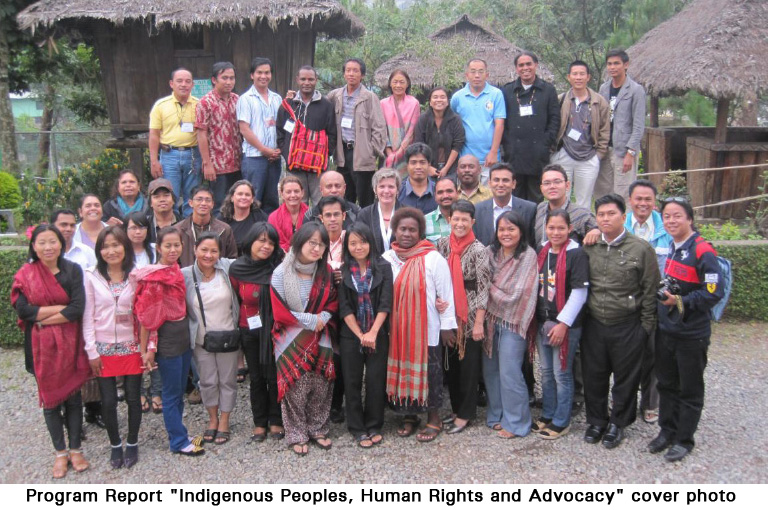
NORDIS – Northern Dispatch Weekly – April 17, 2011 at http://www.nordis.net
by Aungsathwi Marma, Salai Lailoung, Ramy Bulan, Simson Nicky and Jude Baggo
BAGUIO CITY – Forty-one indigenous peoples from 15 countries of the Asia-Pacific Region gathered here for a two-week training on international human rights law and United Nations mechanisms as applied to indigenous peoples.
Diplomacy Training Program (DTP), an Asia-Pacific human rights non-government organization based in Australia[1], sponsored the training slated from April 6 to 15 in partnership with the Asia Indigenous Peoples Pact (AIPP)[2], Cordillera Indigenous Law Center or DINTEG Inc., and the Commission on Human Rights of the Philippines (CHRP)[3].
The training aimed to strengthen and empower the leaders of indigenous peoples and human rights workers from Asia-Pacific on regional and international human rights instruments, standards and mechanisms which they can utilize in advancing their rights and issues.
It also served as a venue for sharing their experiences and learn from these experiences which they can apply in their situations for the advancement of their aspirations and struggles, and for the full respect, protection and promotion of their collective rights as people.
The resource speakers during the training extensively discussed individual and collective rights based on the United Nations declarations, covenants, conventions and treaties. Among the UN instruments discussed were the Universal Declaration on Human Rights, International Covenant on Civil and Political Rights, International Covenant on Social, Economic and Cultural Rights, and United Nations Declarations on the Rights of Indigenous Peoples.
Speakers during the training are experts on the different fields on the UN mechanisms. Among the speakers in the training were Dr. Sarah Pritchard, Prof. Virginia Dandan, Victoria Tauli-Corpuz, Joan Carling, Jose Molintas, Rhoda Dalang, Roda Cisnero, Dr. Aurora Parong, Beverly Longid, Karen Gomez-Dumpit, Arthur Allad-iw, Joshua Cooper, and Patrick Earle.
The participants, who came from different indigenous communities from the Asia-Pacific, share the same issues, experiences and aspirations. They face development aggression, such as large scale mining, dams, logging, palm plantations, oil explorations, which they claimed are coupled with militarization of their communities resulting to systematic human rights violations of their individual and collective rights.
The training also highlighted the unwavering commitment of IPs on their continuing struggle for justice, peace, human rights and their collective rights over their ancestral lands and domains. As the training ended, participants found new friendship, experiences, and solidarity.
Baguio City, as the venue for the training, played a significant role in indigenous peoples of the Cordillera in their struggle for recognition of ancestral lands. # nordis.net
Related Article:
 Home | Aims and Objectives of Solidarity Philippines Australia Network | About Kasama
Home | Aims and Objectives of Solidarity Philippines Australia Network | About Kasama 
Search the SPAN Web